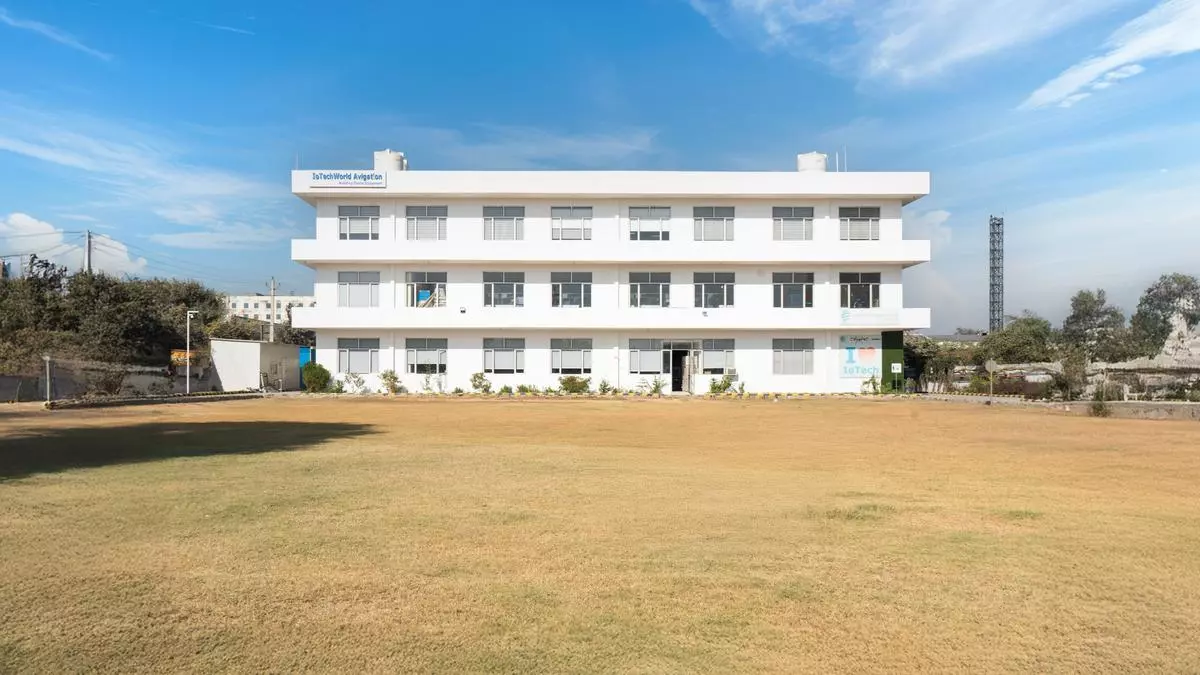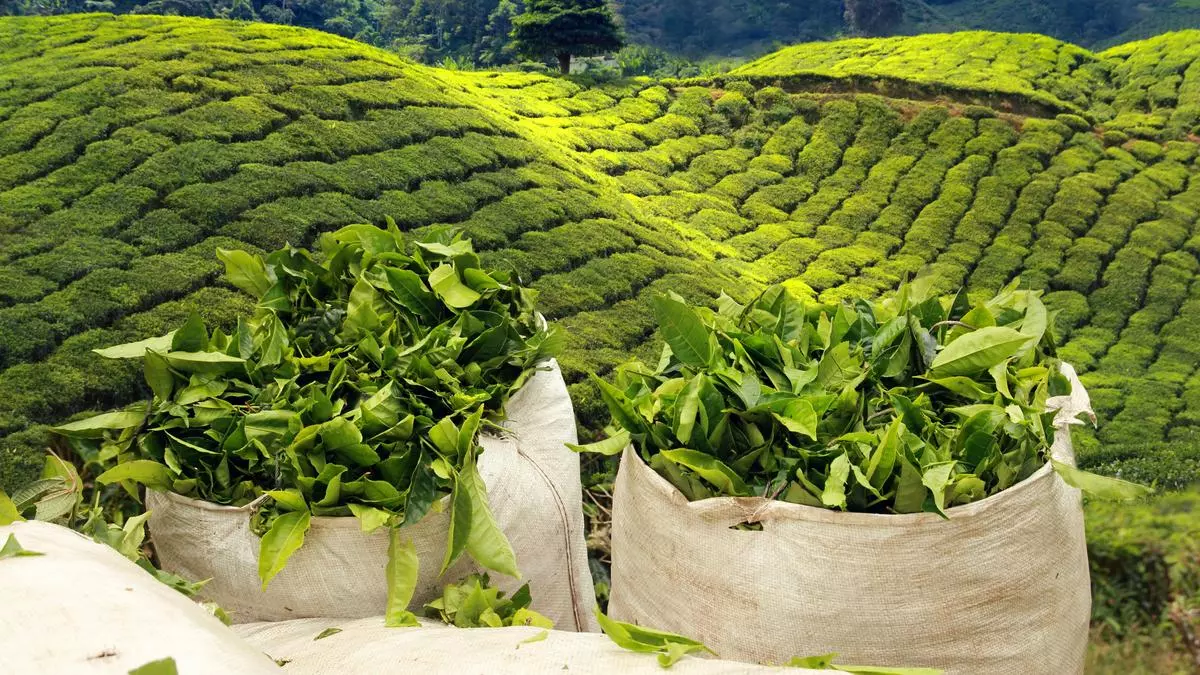IoTechWorld Avigation, one of India’s largest drone manufacturers, has developed a process to directly spray and sow seeds of paddy, chilli and various vegetables, say the company’s co-founders Deepak Bhardwaj and Anoop Upadhyay.
“Sowing is a difficult process when it comes to rice. That’s why we developed a process to broadcast paddy seeds directly. They germinate very well and the yield is comparable to the conventional process. It has made life easy for farmers,” said Bhardwaj, who is also the director of the company along with Upadhyay.
IoTech has managed to broadcast similar ‘broadcasts’ of various vegetables and chillies in Tamil Nadu. “The results are overwhelming,” Bhardwaj said.
‘Like a tractor’
“The drone is multifunctional, just like a tractor. It not only sprays agricultural chemicals, but also emits granules such as urea, seeds and the like. By making our drone multi-functional, we have been able to increase the number of days when drones can be deployed in the field,” said Upadhyay.
Founders and Directors of IoTechWorld Avigation Deepak Bharadwaj (left) and Anoop Upadhyay
He said the results are “promising” and that the company has broadcast seeds to fields as well as fish feed and afforestation. “In hilly areas it is very difficult for people to water the seeds. Drones can fly and spray the seeds so that the trees grow up, especially during the rainy season,” said Upadhyay.
IoTech, which was founded in 2017 and launched its first drone in 2018, sees a bright future for drone technology in India. While the main purpose of the drones is crop protection – spraying insecticides, nutrients and fungicides – it could also be used for farm surveys or using multi-spectral cameras, the co-founders said.
R&D manufacturer
The company, which has a presence in all states, including the Andaman Islands, and also has a retail channel in 12 states, is a research and development manufacturer of drones. The company only sells drones and does not offer a spraying service.
However, it has tied up with agri-entrepreneurs who are purchasing 50 to 60 drones and providing these services. Farmers make up 30 to 35 percent of customers, with a few state Department of Agriculture Service (DAS) partners making up another 30 percent.
“And we are a research and development based manufacturer. Whatever components you see in our drones, they are all designed and developed by us in India,” said Bharadwaj.
IoTech, which has launched 3,000 drones so far, has a major share in the country’s drone market with its own dealer and service networks.
Looking for exports
The company, which has more than 200 employees, is a deep-tech company and its strength is innovation. “We are developing new components and adding more functions to drones. We make the software very intuitive so that farmers can use drones without much hassle,” said Upadhyay.
IoTech connects farmers via the cloud and transmits data in real time. The company also focuses on exports and controls quality, costs and supply chain. The company only sells drones through dealers, but does take bulk orders of 50 to 60 drones.
Bhardwaj said the company will first look at the Southeast Asian market and then Africa and Latin America. The company’s drones are used by almost all types of users: researchers, companies and DAS arms such as Krishi Vigyan Kendras.
About the Centre’s drone policy, Bhardwaj said it has helped companies get into the drone space and created hundreds of agricultural entrepreneurs.
Upadhyay said its drones can be easily flown in three steps after filling the tank with graphical user interfaces in many regional languages that help farmers. The drones, which cost ₹5-6.5 lakh, have artificial intelligence and machine learning features such as collision avoidance, obstacle detection and automatic rerouting.
Financing buys
As for cloud integration, all data captured by the drone goes to the cloud and is analyzed in the control room. The way an agri-entrepreneur or farmer flies a drone is being analyzed and the company is directly appealing to farmers to help, Bhardwaj said.
IoTech has tapped the State Bank of India, Punjab National Bank and will soon rope in another bank to provide loans to buy these drones. It also helps agricultural entrepreneurs tap into the government’s financial service through an agricultural infrastructure fund to get loans up to 90 percent of the drone value.
“The loans are provided at a low interest rate of 9 percent with a 3 percent government subsidy. The effective rate is only 6 percent and the loan is uncertain,” said Bhardwaj.
The company has one remote pilot training organization to train drone pilots.
On drone didis, Bhardwaj said it brings many benefits including direct industrial growth. The Center has allocated ₹1,200 crore for the Drone Didis project, which will increase the penetration and reach of agricultural drones across the country.
Drone Didi’s impact
“It sends a bold and loud message to all potential agricultural entrepreneurs: if a lady can fly a drone and earn a shortfall of rupees every month, why not men,” he said.
Upadhyay said the Drone Didis project will increase women’s participation in agriculture. “Even a lady who has completed the tenth standard can become a drone didi. We are on a mission to enable the adoption of agricultural drones in rural India for the benefit of our farmers,” he said.
On the lack of trained drone pilots, Upadhyay said more training of on-ground drone operators is needed so that many can make it a career and earn a better livelihood.
“This is the fourth technological revolution after mobile and I think we will play an important role,” he said.
Bhardwaj said it is proving difficult to get loans under the agricultural infrastructure funds. “For example, if a farmer applies today, it will take two months for the loan to be disbursed, even if everything looks good. Two months is a long period. We request the Center to intervene and make this process easy, including for agricultural entrepreneurs who sometimes have to come up with additional capital,” he said.











